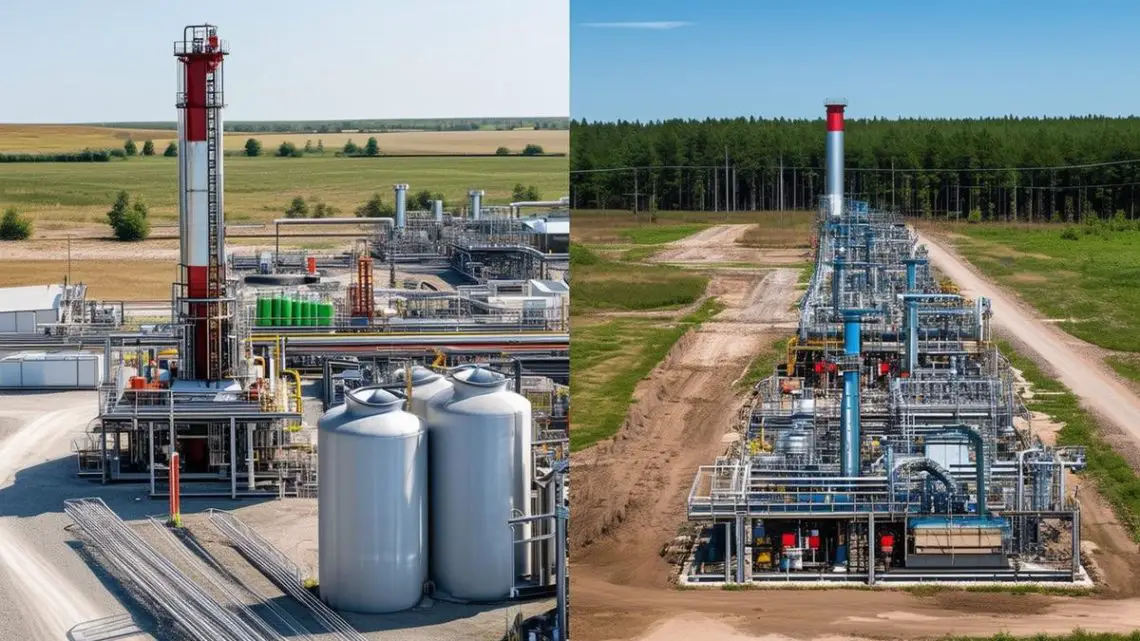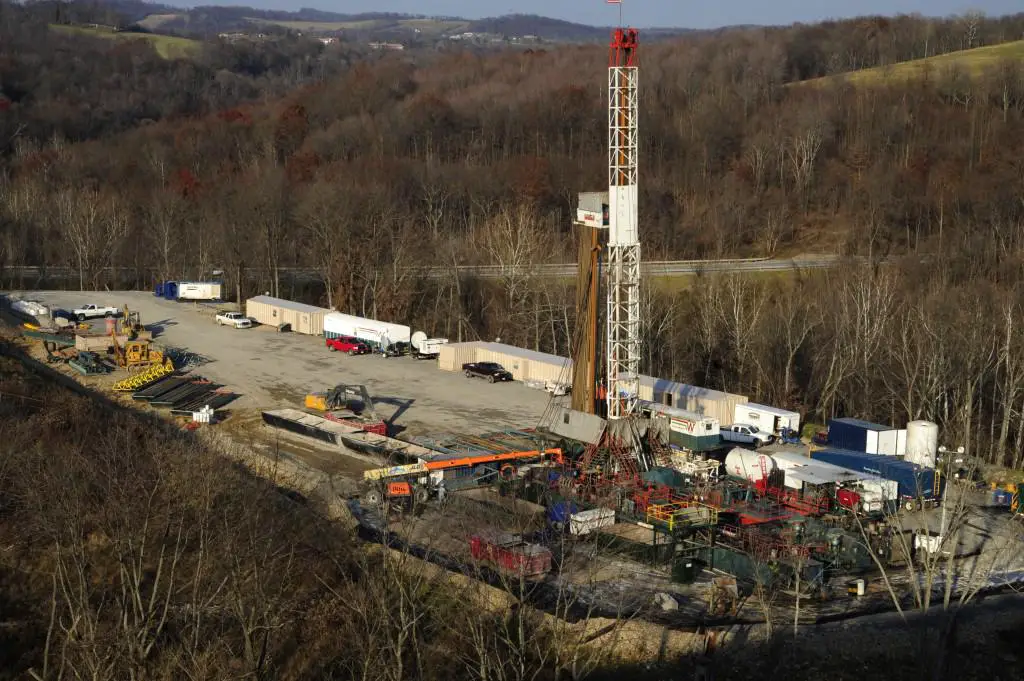
Geological Hydrogen vs Fracking
May 2, 2024Environmental Impact of Fracking
Hydraulic fracturing, or fracking, is a controversial method of extracting oil and gas that has raised concerns over its environmental sustainability. The process involves injecting high-pressure fluids into shale formations to release trapped hydrocarbons, but it comes with risks.
One major concern is the potential for groundwater contamination. The fracking fluid contains a mixture of water, sand, and chemicals, some of which are toxic. If not managed properly, these chemicals can seep into freshwater aquifers, posing risks to drinking water supplies. Studies have cited instances where nearby water sources showed elevated levels of hazardous substances following fracking operations.
Another pressing issue is methane leakage. During the drilling and fracking processes, methane, a potent greenhouse gas, can escape into the atmosphere. This contributes to climate change and negates some of the benefits of using natural gas, which has lower carbon emissions than coal or oil.
Induced seismicity, or human-caused earthquakes, presents another risk. Injecting fluids into wells at high pressures can trigger seismic events, causing distress to local communities and damaging infrastructure.
These environmental downsides highlight why some see geological hydrogen as a preferable alternative. Extracting naturally occurring hydrogen gas from underground does not require high-pressure fluid injections, reducing the risk of induced earthquakes. The process also does not involve hazardous chemicals, mitigating the risk of groundwater contamination.
Hydrogen extraction produces no direct carbon emissions and, under perfect conditions, would generate only water vapor when burned. However, the method of obtaining hydrogen affects its overall environmental footprint.
Both geological hydrogen and fracking carry their own risks, and continued research is essential for minimizing their adverse effects on the environment. With advancements in technology, hydrogen could play a pivotal role as a more sustainable energy source.

The Science of Geological Hydrogen
Geological hydrogen, derived from natural processes deep within the Earth’s crust, presents a compelling alternative to traditional energy extraction methods. Central to its production is the process of serpentinization, which occurs when water interacts with minerals like olivine found in ultramafic rocks. This chemical reaction oxidizes the iron in the olivine, freeing up hydrogen gas.
Unlike fracking, which forcefully opens rock formations with high-pressure fluids, serpentinization is a natural and passive process. It requires no human-induced pressure and no toxic chemicals that could pose risks to groundwater or the surrounding environment.
Explanation on What is Serpentinization
The realization that significant volumes of hydrogen might be trapped within the Earth’s crust has led to the development of technologies that can efficiently tap into these resources. Equipment used for geological hydrogen exploration differs from those used for traditional fossil fuel extraction, as it is designed to detect and measure hydrogen seepage without handling high-pressure fluids or toxic contaminants.
While fracking raises concerns over water contamination, methane emissions, and induced seismicity, extracting geological hydrogen holds the promise of mitigating many of these issues. It lacks the byproducts produced by fracking and does not contribute to greenhouse gas emissions during extraction.
However, it is important to recognize that our understanding and application of Earth’s natural hydrogen processes are still in their relative infancy. Each step toward harnessing this resource requires exhaustive scientific study and cautious advancements. By learning from the impacts of conventional energy methods, researchers and engineers are driven to develop responsible, efficient ways to unlock the potential of geological hydrogen.
As the drive towards a more sustainable future intensifies, the emerging technologies and methodologies surrounding geological hydrogen extraction must be optimized to ensure they do not recreate the issues they aim to alleviate. This is a pivotal narrative in the broader scope of modern environmental stewardship and energy management.
Economic and Safety Concerns
Despite the environmental attractiveness of geological hydrogen, key questions remain regarding its economic viability and safety considerations compared to traditional extraction methods like fracking.
The initial financial outlay for extracting geological hydrogen can be steep due to the cost of specialized drilling and extraction equipment. The technologies are nascent and require significant investment in research and development to ensure their efficiency at a commercial scale. However, the long-term payoff could potentially be substantial owing to increasing global demand for cleaner energy alternatives.
Regarding market growth, hydrogen as a clear, renewable energy source has a broad spectrum of applications, extending from industrial processes to powering fuel cells for vehicles. This diversity opens multiple market avenues which could see exponential growth as governments and corporations push towards net-zero emissions targets.

Safety is another essential factor in considering the feasibility of geological hydrogen. The extraction process does not involve high-pressure fracturing fluids or hazardous chemicals, which negates the risks of groundwater contamination or gas leaks traditionally associated with fracking. However, hydrogen is a highly inflammable substance , and its collection and transport would require strict adherence to safety protocols to prevent potential explosions.
, and its collection and transport would require strict adherence to safety protocols to prevent potential explosions.
Preliminary studies suggest that geological hydrogen extraction results in a significantly reduced level of territorial disturbance compared to extensive drilling operations for oil and gas. This reduces long-term environmental impacts and potential legal liabilities concerning land use.
As the shift to sustainable energy gathers pace globally, the technological, economical, and safety-related assessment of hydrogen extraction proves to be a balanced venture, potentially providing a robust alternative to fossil fuel extraction methods. While not without its challenges, geological hydrogen offers an enticing promise of a cleaner, multi-use energy that fits well within visions of future green economies. Investments into research could indeed prove economically sound, pivoting energy extraction away from fracking toward a more sustainable and broadly beneficial system.
- Truche L, Bazarkina EF, Berger G, et al. Natural hydrogen exploration: Insights from geochemical simulations and machine learning. Energy & Environmental Science. 2021;14(3):1619-1637.
- Moretti I, Brouilly M, Loiseau K, et al. Evaluating hydrogen degassing in active fault zones: The North Pyrenean Frontal Thrust case study. Bulletin de la Société Géologique de France. 2021;192(1):11.
- Gaucher EC. New perspectives in the industrial exploration for native hydrogen. Elements: An International Magazine of Mineralogy, Geochemistry, and Petrology. 2020;16(1):8-9.
Ready to test your knowledge on the most abundant element in the universe? Take our fun and engaging Hydrogen Quiz now! [forminator_quiz id=”58712″]



 With over 15 years of reporting hydrogen news, we are your premier source for the latest updates and insights in hydrogen and renewable energy.
With over 15 years of reporting hydrogen news, we are your premier source for the latest updates and insights in hydrogen and renewable energy.